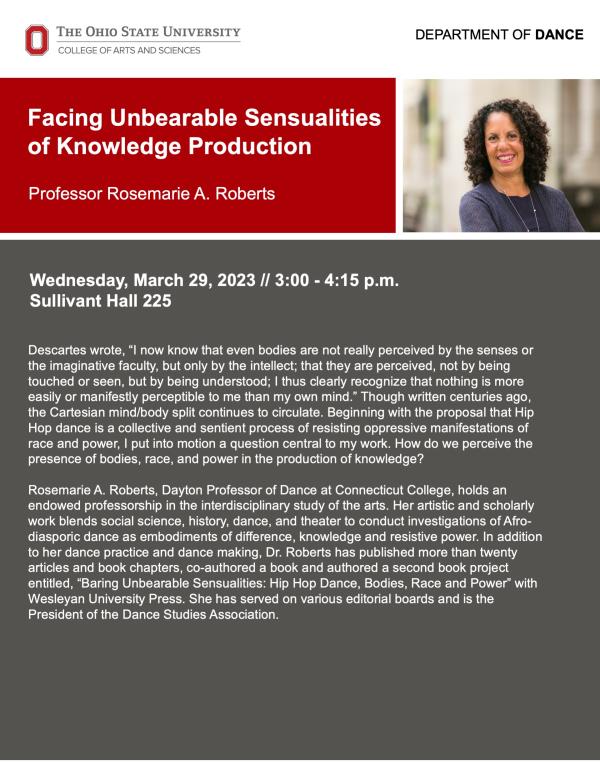
Descartes wrote, “I now know that even bodies are not really perceived by the senses or the imaginative faculty, but only by the intellect; that they are perceived, not by being touched or seen, but by being understood; I thus clearly recognize that nothing is more easily or manifestly perceptible to me than my own mind.” Though written centuries ago, the Cartesian mind/body split continues to circulate. Beginning with the proposal that Hip Hop dance is a collective and sentient process of resisting oppressive manifestations of race and power, I put into motion a question central to my work. How do we perceive the presence of bodies, race, and power in the production of knowledge?
Rosemarie A. Roberts, Dayton Professor of Dance at Connecticut College, holds an endowed professorship in the interdisciplinary study of the arts. Her artistic and scholarly work blends social science, history, dance, and theater to conduct investigations of Afro-diasporic dance as embodiments of difference, knowledge and resistive power. In addition to her dance practice and dance making, Dr. Roberts has published more than twenty articles and book chapters, co-authored a book and authored a second book project entitled, “Baring Unbearable Sensualities: Hip Hop Dance, Bodies, Race and Power” with Wesleyan University Press. She has served on various editorial boards and is the President of the Dance Studies Association.

